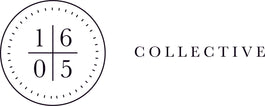Levi van Veluw | Interview
An excerpt from Katerina Furrer in conversation with Levi van Veluw in 1605 Magazine No.2 Illusion
Images: Levi van Veluw
With an oeuvre that spans photography, sculpture, installation and video art, Levi van Veluw sees the bigger picture. His immersive works are often reminiscent of spiritual experiences, three-dimensional worlds that inspire awe.
His approach spotlights our collective humanity. It is a reminder that wisdom can be found in feeling rather than intellectualising. An installation might include handprints left by the artisan creating a sculpture or feature earlier abandoned attempts. Even in a massive space where one might feel overwhelmed, van Veluw draws the audience in with intentional details. These elements echo the tactility of the human experience.

Memory is a key theme in van Veluw's work. Time and nostalgia can morph recollection; they shift and change, becoming warped reflections somewhere between who we were and who we are. It is these illusions—of self, of emotion, of space—that make his work so revelatory. They help connect us to deeper hidden truths.
A profound thinker, van Veluw isn’t driven to make things that are simply beautiful or to turn heads with empty grandeur. Instead, he tugs at threads within us. He encourages us to question anything and everything. To see the beauty in the process and to find wonder all around.

K - How do you define art and what is your role in its creation?
L - For me, it’s about being completely autonomous. I think that’s the most important part—to keep your freedom. It’s also the freedom to choose between disciplines. You needn’t be just a photographer or a sculptor; it’s about having ideas. The medium is just a way
to visualise your idea, and that can come in different forms and shapes.
If I have an exhibition, it’s always a combination of installation and sculpture. It can also be video or other mediums because, in my opinion, I need to convince the visitor and draw them into my ideas.

K - How did you find your calling and develop your process?
L - When I went to art school, I was very young. I started when I was 18 and graduated at 22. I didn’t have any idea about the art world. In my fourth year, I interned with Erwin Olaf, and at the time, I thought I wanted to be a photographer. But during the internship, I realised I didn’t want to do only that. When I took the photos, I built small sets and photographed them. This set design interested me, and I began to see that the experience of shooting could become an installation.

